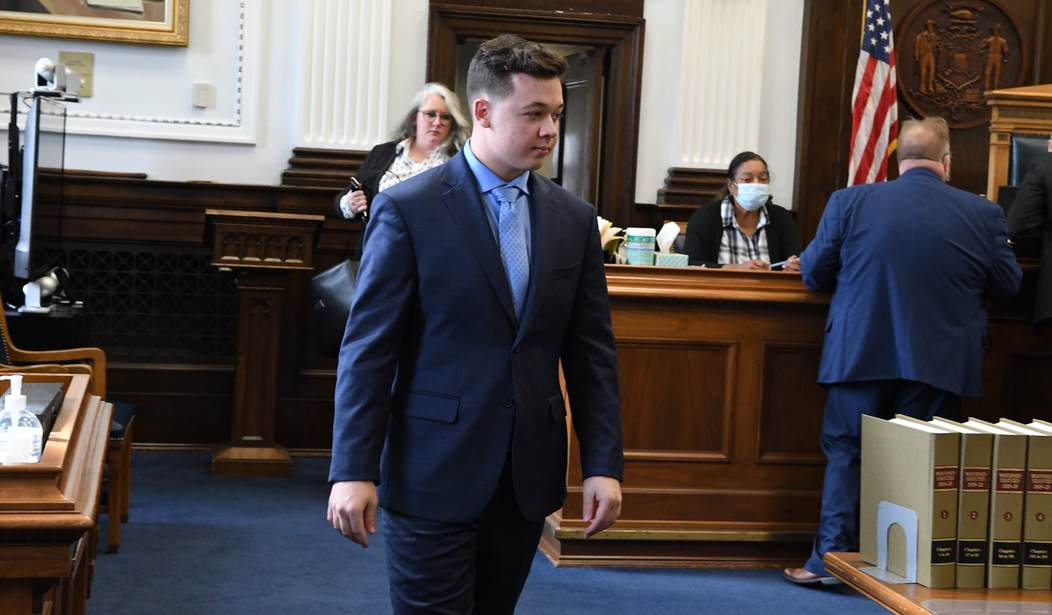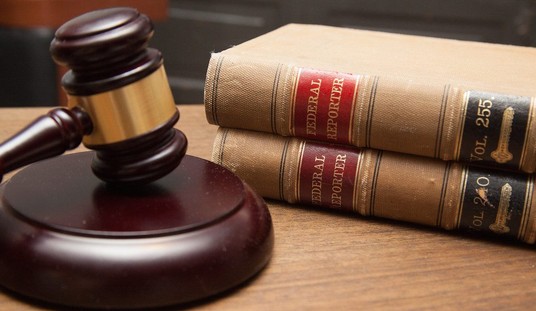During Kyle Rittenhouse’s sit-down with Tucker Carlson, the teen mentioned that he’s become a supporter of criminal justice reform thanks to his first-hand experience with prosecutors and the legal system. Assistant District Attorney Thomas Binger raised a lot of eyebrows with his performance during the trial, and there was plenty of speculation about whether or not Judge Bruce Schroeder would have granted a mistrial if the jury had returned a “guilty” verdict on any of the charges.
We’ll likely never know the answer to that question (unless Judge Schroeder decides to publicly opine on what he would have done), but we’re already seeing several states attempt to address potential misconduct by other prosecutors with the introduction of “Kyle’s Law.”
Oklahoma state Sen. Nathan Dahm appears to be the originator of the language, which he says would allow defendants recourse to sue prosecutors over cases that should never have been brought to court in the first place.
If the bill were to pass, a person charged with murder who is found not guilty due to justifiable homicide would be privy to reimbursement by the state for reasonable costs – like loss of wages, legal fees incurred and other expenses involved in his defense.
The accused would have to establish “malicious prosecution” by showing it was instigated by the prosecutor and was without probable cause; that the prosecution had legally been terminated in favor of the claimant; and that as a result of the prosecution, the claimant sustained injury. A prosecutor could also be held personally liable if malicious prosecution was established.
I sympathize with the intent here, but I have real questions about how this would work in practice, as well as why the law would only apply to cases where the defendant claims to have acted in self-defense. Take the case of Mark and Patricia McCloskey, for example. The St. Louis couple were charged with felony unlawful use of a weapon by St. Louis Circuit Attorney Kim Gardner, who was ultimately sanctioned and tossed off the case by a judge after she bragged about going after the couple in her campaign fundraising emails. There’s plenty of evidence to suggest that the charges filed against the McCloskeys were motivated more by politics than public safety, but “Kyle’s Law” only applies to murder cases, so under Dahm’s legislation they would be out of luck in terms of being able to seek recourse.
As you might have guessed, there are a lot of folks on the Left who aren’t fans of the idea either, though their arguments are very different. New Hampshire state Rep. Katherine Rogers, for example, calls the proposal a “wolf in sheep’s clothing.”
What qualifies any jury to make a judgement on the performance of the prosecutor, and whether it is a politically motivated case? How does this get decided? A prosecutor is acting in good faith, within the scope of the authority they possess, based on evidence, case law and precedence. Adding personal liability to their performance would mean prosecutors won’t proceed in any case against a person who could claim self-defense. This litmus test would be unlike anything else in our criminal justice system and open a wide door for abuse.
This bill would only expand the use of the self-defense defense to include almost every case in which someone feels threatened. Self-defense claims will skyrocket as defendants see the legal loophole for getting away with criminal activity.
This bill effectively legalizes vigilante justice. Law enforcement is not a private right. We must offer public safety in the form of state or local police. While every citizen has the right to self-defense, we do not have the right to put ourselves in positions of danger every chance we get and to invite others to attack us for no reason.
Of Rogers’ three arguments, we can easily dismiss the last two. There’s no penalty to claim self-defense as it is (nor should there be), so I highly doubt that “Kyle’s Law” would lead to self-defense claims skyrocketing. And “Kyle’s Law” wouldn’t legalize “vigilante justice” any more than self-defense statutes do. But just as a stopped clock is right twice a day, I think Rogers actually makes a valid point when she asks about the practicality of a jury deciding whether or not a case was politically motivated or malicious in nature.
Remember, a jury is empaneled to determine the guilt or innocence of the defendant, and that’s what they should be focused on. To charge them with also deciding whether or not the prosecution should have even brought a case would be a major expansion of the jury’s responsibility, and frankly, I’m not sure that it should be left with them.
Keep in mind as well that “Kyle’s Law”, as proposed anyway, would only come into play if someone was found not guilty of murder after raising a self-defense claim. What about those cases of prosecutorial misconduct that actually lead to a conviction, or cases that don’t involve questions of self-defense? Obviously a jury voting to convict someone of murder isn’t going to turn around and declare that the prosecution was malicious, but it’s just as obvious that prosecutors who do put politics over the evidence may end up winning a conviction in some cases. What happens then?
To me, “Kyle’s Law” seems like more like a knee-jerk emotional response to the outrageous behavior by the Kenosha County prosecutors, rather than a substantive effort to address the issues of prosecutorial misconduct. And the truth is that there are consequences for provable acts of misconduct, including disbarment and even criminal charges. The real issue, to me anyway, seems to be that those consequences are rarely felt by prosecutors, and I’m not convinced “Kyle’s Law” is the best way to improve on the status quo.









